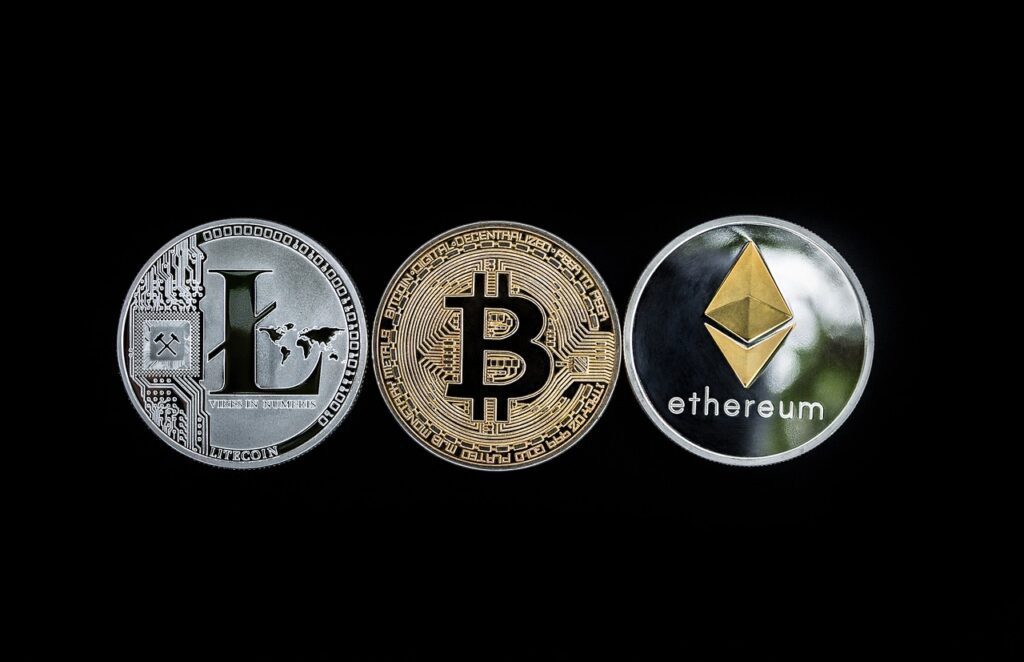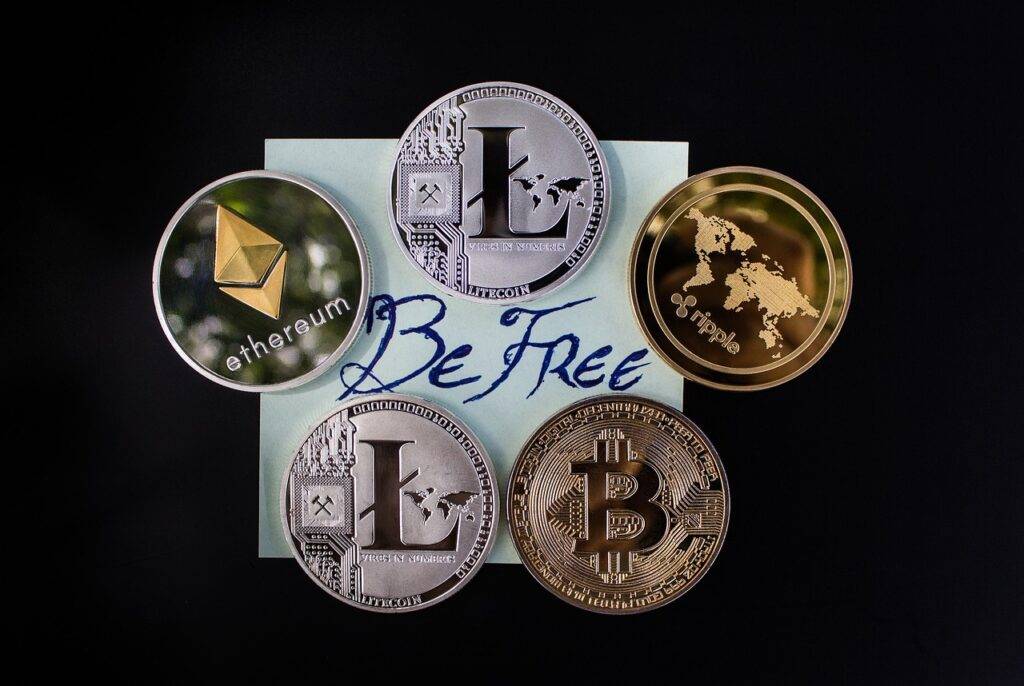Cryptocurrency Hub: By establishing a decentralized and secure digital money system, it has fundamentally altered the financial environment. The creation of Bitcoin hubs is one important trend in this area. These platforms, which are centralized, serve as centers for many areas of Bitcoin trading, investing, and information exchange. The goal of this blog is to provide readers with a thorough overview of Bitcoin hubs.
Including information on their varieties, business strategies, demand, potential drawbacks, advantages, and overall effect on the ecosystem. Readers will learn a lot about the world of cryptocurrency hubs and how they influence the always-changing environment of digital currencies by examining these elements.
Types of Cryptocurrency Hubs
Cryptocurrency Hubs exist in a variety of shapes and sizes, each with a special Function in the world of digital assets. Trading platforms, investment platforms, information portals, and wallet providers are a few examples of typical categories.
> Exchanges
It exchanges are sometimes referred to as cryptocurrency hubs. Act as essential platforms that let users buy, sell, and trade different types of digital assets. These exchanges serve as middlemen, bringing together buyers and sellers in a market created especially for Bitcoin trades. Utilizing these hubs allows users to buy, sell, and explore a variety of cryptocurrencies that are accessible for trade.
Due to their central position in its ecosystem, cryptocurrency Hubs have evolved into crucial channels. That supports the development and growth of the digital currency market by giving consumers a simple and safe environment in which to engage with the dynamic world of cryptocurrencies.
> Wallet Providers
By providing consumers with safe digital wallets for storing and managing their bitcoins. Wallet providers play a significant part in its ecosystem. These wallets can be found online, as software programs, hardware-based devices, or in other configurations. Since users can easily access their wallets and conduct transactions within the hub’s ecosystem.
Thanks to this collaboration, they frequently work with wallet providers to guarantee smooth integration. By utilizing the knowledge of wallet providers, cryptocurrency hubs improve the security and accessibility of customers. The digital assets give them a reliable alternative for storing and using their bitcoins.
> Information and news portals
Providing users with regular updates, analysis, and insights into the constantly changing world of digital currencies, news, and information portals are essential parts of cryptocurrency hubs. These portals provide thorough coverage of the most recent trends and developments in their market, making them essential tools for investors.
Investors may make wise judgments and better manage the volatile its market by staying up to speed with news and information from these sources. These hubs collect and distribute pertinent material, providing users with the know-how they need to comprehend market trends. They spot possible business opportunities and keep up in the frantic world of it.
> Blockchain Explorers
By giving users the opportunity to explore and track transactions across different blockchain networks. Blockchain explorers play a crucial role in the Bitcoin ecosystem. These technologies enable users to follow the flow of money and decentralized verify transactions by bringing transparency and visibility to the movement of cryptocurrency.
The sender and recipient addresses, transaction amounts, timestamps, and even other data recorded on the blockchain may all be examined in depth by using blockchain explorers. By enabling users to audit and confirm the accuracy of blockchain transactions, this degree of openness increases responsibility and confidence within the Bitcoin community.
The Cryptocurrency Hubs Industry
Cryptocurrency hubs are businesses that offer services and make money in a variety of ways. To support their financial operations and growth, their business models include elements like trading commissions, transaction processing, custody options, initial coin offers (ICOs), decentralized finance (DeFi) platforms, and mining activities.

Trading Fees
The fees that Bitcoin exchanges charge for enabling trades on their systems are known as trading fees. These charges may be set as either a flat fee per trade or as a percentage of the trade value. Depending on variables like trading volume, user tier, or trade type (like a market order or limit order).
The particular cost structure may vary between exchanges. Trading commissions help Bitcoin exchanges generate money by covering operational expenses, platform upkeep, and future infrastructure development.
> Listing Fees
To add new cryptocurrencies to their trading platforms, several cryptocurrency exchanges charge listing fees. By paying these fees, it projects can have access to a wider user base and more liquidity by being listed on the exchange. The technology, compliance, and market demand of the project are often examined as part of the listing process.
The listing fees are a source of income for exchanges and help to increase their overall profitability. It’s important to keep in mind that not all exchanges impose listing fees. Some can use different standards or methods to choose which cryptocurrencies to accept on their platforms.
> Advertising
The way that cryptocurrency hubs make money is by renting out advertising space to different players in the blockchain and its sectors. To advertise their goods and services, they offer instructional resources, platforms for blockchain initiatives, and services relating to cryptocurrencies.
These commercials may appear as banners, sponsored content, or highlighted listings. By making money off of advertising space, bitcoin hubs are able to diversify their sources of income. They foster the expansion of the ecosystem and match advertisers with the right consumers.
> Premium Services
Cryptocurrency hubs frequently provide premium services for a monthly price. Catering to customers looking for sophisticated trading tools, market research, or individualized customer assistance. Beyond the fundamental functions, these value-added services work to improve the user experience.
In addition to earning more money, bitcoin hubs serve the demands of more experienced traders and investors by providing such premium services. Users may obtain a competitive advantage in their market by utilizing these services. Which might include cutting-edge trading tools, real-time market analytics, personalized portfolio management, or access to unique research papers.
Startups in the cryptocurrency
Startups in the cryptocurrency industry are business ventures that concentrate on creating cutting-edge goods and solutions for blockchain technology and virtual currencies. By utilizing the decentralized and open characteristics of cryptocurrencies. These firms seek to upend established industries and revolutionize several areas. They frequently establish blockchain systems and develop decentralized apps (dApps).
They design new cryptocurrencies or tokens or provide specialized services like their wallets, payment methods, or decentralized finance (DeFi) platforms. These firms often look for funding through venture capital investments or initial coin offerings (ICOs) to support their expansion. They realize their ideas in the dynamic and developing world of cryptocurrencies.
The Demand for Cryptocurrency Hubs
The rising interest in digital assets, the adoption of Blockchain technology, and the need for Financial innovation and decentralization. These are some of the causes that are fueling the spike in demand for cryptocurrency hubs.

> Increasing Crypto Adoption
The need for cryptocurrency hubs that provide safe, user-friendly platforms for trading and managing digital assets. Has increased as a result of the Increasing use of cryptocurrencies. There is a demand for trustworthy platforms that offer flawless user experiences, and cutting-edge functionality. The strong security measures as more people and organizations enter the crypto market.
In order to support the growing user base and enable the seamless integration of cryptocurrencies into regular financial activities. They play a crucial role in satisfying this demand. The Cryptocurrency hubs provide a wide range of Services, including their exchanges, wallets, and portfolio management tools.
> Needs for Information
Investors and market players need timely and reliable information more than ever in the dynamic and quick-paced world of cryptocurrencies. For people and organizations looking to make educated decisions, cryptocurrency hubs that offer trustworthy and current news, analysis, and insights become essential tools.
To assist users in understanding market trends, and evaluating investment possibilities. It’s navigating the complexity of the crypto ecosystem, these hubs frequently include market data, price charts, expert perspectives, and instructional materials. These hubs help the cryptocurrency market flourish, be transparent, and inspire trust by meeting the information demands of the community.
> Security issues
As the bitcoin market develops, customers’ security concerns are of utmost importance. People and organizations alike are seeking Bitcoin centers that prioritize security more and more. There is a huge need for reliable exchanges and wallet providers who use strong security methods.
Including encryption, two-factor authentication, and cold storage options. Users seek reassurance that unauthorized access and hacking efforts won’t compromise their digital assets. Cryptocurrency hubs may play a key role in promoting the wider use of cryptocurrencies by resolving security concerns and putting strict security standards in place.
> Easy of Use
Cryptocurrency hubs must have user-friendly interfaces and smooth experiences in order to draw consumers, especially those who are unfamiliar with the crypto industry. These hubs remove entry barriers and increase the accessibility of cryptocurrencies. By providing user-friendly interfaces that make the process of purchasing, trading, and maintaining digital assets simpler.
Users’ trust and confidence may be increased by providing a simplified user experience with simple registration, intuitive navigation, and clear trading and wallet management instructions. The cryptocurrency hubs encourage widespread acceptance of cryptocurrencies and mass market engagement in the crypto ecosystem by placing a high priority on usability
Cryptocurrency lawyers
Legal experts with specialized knowledge and experience in the fields of cryptocurrencies. Blockchain technology and associated legislation are known as cryptocurrency attorneys. They aid people, companies, and organizations in negotiating the complicated legal framework around cryptocurrencies. Which includes adherence to anti-money laundering (AML) and know-your-customer (KYC) rules. The securities laws, tax requirements, and intellectual property rights.
Initial coin offers (ICOs), token sales, smart contracts, and other blockchain-based operations are all subject to legal guidance from their attorneys. Additionally, they assist customers in comprehending the legal ramifications of their investments, conflicts, and regulatory changes. The rights and interests of participants in their business are crucially protected by their attorneys, who also play a critical role in assuring legal compliance.
Associated Cryptocurrency Hub Losses
While cryptocurrency hubs provide many benefits, they also have certain inherent dangers. Including price volatility, hacker assaults, regulatory uncertainty, and the possibility of financial losses as a result of mistakes in investing strategy or technological flaws.
> Market Volatility
Investments in cryptocurrencies are inherently hazardous due to market volatility. Digital asset prices are subject to large swings, which might result in losses for individuals who trade or invest through cryptocurrency exchanges. Before making any financial decisions, people should exercise prudence.
Be aware of the hazards involved with these investments, and thoroughly investigate their options. Diversification and stop-loss orders are two effective risk management techniques that can lessen the effect of market volatility and prevent possible losses.
> Breaches of security
Cryptocurrency hubs make an effort to put in place strong security measures. Yet they are still susceptible to hacking attempts and security breaches. If a breach is successful, consumers could incur damages if their money is taken or their personal information is exposed.
Prioritizing security procedures like using strong passwords, activating two-factor authentication, and keeping money in safe wallets are essential for consumers. The danger of security breaches may also be reduced when using this. By remaining abreast of the most recent security best practices and being watchful of phishing efforts.
> Regulatory Changes
The regulatory environment in which cryptocurrency hubs operate is dynamic. Regulations that suddenly change can have a big effect on these centers and could interrupt their functioning. Regulatory changes might mean the end of some services, limitations on trade, or a rise in compliance requirements.
It is crucial for it to keep up with legislative changes and modify their business models accordingly. Users of these hubs should also be alert to any legislative changes. That can impact their ability to access certain services or the way the cryptocurrency hub they are using operates as a whole.
Cryptocurrency options trading
The purchasing and selling of options contracts based on digital currencies constitute their options trading. Options are Financial derivatives that provide the customer the option—but not the obligation—to purchase or sell a specific quantity of cryptocurrencies at a predetermined price within a predetermined window of time. Investors can use several ways to create revenue through options trading to generate income.
Hedge existing investments, or speculate on the price fluctuations of cryptocurrencies. Because traders may take long or short positions, control risk with little chance for loss, and perhaps even profit from market volatility, it gives flexibility. However, there are Hazards associated with trading options, one of which is the potential loss of the option premium.
Positive Effects and Benefits of Cryptocurrency Hubs
Cryptocurrency hubs provide advantages including simplifying trade, giving safe storage options, and encouraging innovation. The accelerating adoption, enabling information access, and promoting financial inclusion, all of which help its ecosystem grow and thrive.

> Liquidity Has Increased
Exchanges for cryptocurrencies are essential for increasing market liquidity. Exchanges serve as platforms for purchasing and selling digital assets, facilitating quick entry and exit for investors and enhancing market efficiency. Liquidity makes ensuring that there are enough traders available.
Which promotes better price discovery and lessens the influence of huge orders on market pricing. A more stable and developed cryptocurrency market. which attracts more players and supports the entire development of the ecosystem, is fostered by increased liquidity, which also helps traders and investors.
> Educational Resources
The need for education is acknowledged by cryptocurrency hubs. Which offer helpful materials to aid users—particularly newcomers—in understanding the principles of cryptocurrencies and blockchain technology. These instructional resources may include webinars, articles, tutorials, guidelines, and guides covering blockchain technology, wallet administration, security best practices, and investing methods, among other subjects.
They give consumers the tools they need to learn more about the ecosystem. They make wise decisions and confidently negotiate the complexity of the crypto sector by providing instructional materials. This information exchange helps cryptocurrencies flourish and become more widely used.
> Market Transparency
Due to the availability of data analysis tools and blockchain explorers, they help increase market transparency. These tools give users the ability to monitor and confirm token distributions, transactions, and other on-chain activity. Cryptocurrency hubs foster trust and openness throughout the ecosystem by making this information available.
Users may track the flow of money, acquire insights into market patterns, and make wise decisions based on precise data. Increased market transparency helps to maintain the integrity and stability of the Bitcoin market. By fostering participant trust and making it easier to spot suspicious activity.
> Exposure to new ideas and projects
Cryptocurrency Hubs’ innovations are essential to the development of the crypto industry. These hubs promote cutting-edge technology and ideas by listing and highlighting fresh blockchain projects. These initiatives benefit from this exposure by being more visible and drawing in new investors, which aids in their expansion and development.
They promote ground-breaking initiatives that not only help the development of the crypto ecosystem. But also give investors access to exciting business prospects, promoting the growth and evolution of the sector as a whole.
Cryptocurrency attorney
A lawyer with expertise in the intricate legal facets of the cryptocurrency and blockchain sector is known as a cryptocurrency attorney. These lawyers are very knowledgeable about the rules governing cryptocurrencies. The securities laws, intellectual property rights, and other pertinent legal systems. They support people, companies, and organizations as they navigate legal issues associated with cryptocurrencies.
Like regulatory compliance, ICOs, token offerings, smart contracts, and their related litigation. Attorneys that specialize in cryptocurrencies offer guidance on the legal structure and regulatory compliance. They assist in defending their client’s rights and interests in the quickly changing and complex world of cryptocurrencies.
Conclusion
Cryptocurrency hubs serve as go-betweens, introducing customers to the crypto market, allowing easy trading, and giving them access to useful data. To meet the demands of consumers, these hubs provide a variety of Services, such as Bitcoin exchanges, wallets, and instructional materials. Although these platforms help the crypto ecosystem expand and evolve.
The users should be wary of dangers including market volatility, security flaws, and regulatory changes. Individuals and institutions may engage in their market, make educated decisions, and maximize the potential gains from digital assets. By being aware of these dangers and utilizing the advantages offered by theirs.
FAQs for Cryptocurrency hubs
Hong Kong has plans to become a global cryptocurrency hub despite China’s repression. With the collapse of the digital currency markets and several company collapses. the crypto sector has had a difficult year. Hong Kong is working to establish itself as a center for virtual assets despite the un
Which cryptocurrency website is the largest?
The largest Cryptocurrency exchange in the US is Coinbase. Which offers trading in over 30 different cryptocurrencies. However, its costs might be unclear and more expensive than those of certain rivals.
Which nation leads in cryptocurrency?
South America
It is the first nation to embrace Bitcoin as a legal trend in the entire planet.
Is cryptocurrency accepted in Pakistan?
Pakistan Issues a New Crypto Ban, but Adoption as a Hedge Is Still Common.
Meme coins, utility coins, governance coins, security coins, payment coins, exchange coins, stable coins, and more are all types of cryptocurrencies.
Here is the Complete List of the Top 12 Cryptocurrencies to Buy in 2023: …
The ApeMax.
AiDoge, BNB, Cosmos, Decentraland Coin, Ecoterra, Ethereum, and many more.
What does Islam say about Bitcoin?
For instance, if the majority of the cryptocurrency’s high-priority characteristics are met. The result is more likely to be “Probably Haram,” while the result is more likely to be “Probably Halal,” it continues.
How can I earn $100 per day on Binance?
How can you make $100 on Binance every day? $100 will have been earned if you invested $1000 on Binance. It saw one pair’s price climb by 10%. If you do this every day, you will earn $100 every Single day.
Which cryptocurrency will be in demand in 2024?
The cryptocurrencies LHINU, DLANCE, MET, ECOTERRA, and TARO are among those predicted to experience 30x increases by 2024.
On Binance, can I start trading with just $1?
More individuals than ever may begin investing with Binance.US with the low minimum requirement. Which complements our current $1 minimum for all Buy, Sell, and Convert orders. Select from 150+ cryptocurrencies and use Advanced Trading to buy, sell, convert, and trade cryptocurrencies for as low as $1.
According to daily cryptocurrency trading volume, Binance Holdings Ltd., often known as Binance, runs the biggest cryptocurrency exchange in the world. Changpeng Zhao, a developer who had previously produced high-frequency trading software, established Binance in 2017.
Comparatively speaking, Binance is one of the safer exchanges. Binance is a safe option if you need to store your cryptocurrency on an exchange while actively trading it. A private hardware wallet, as opposed to putting your cryptocurrency on an exchange. It may be a preferable option if you want to maintain Significant quantities of it for a long time.
Who was the inventor of crypto?
The person or individuals who contributed to the creation of the initial Bitcoin software and published the 2008 paper. Popularized the idea of cryptocurrencies is known by the moniker Satoshi Nakamoto.

[…] cryptocurrency hub […]